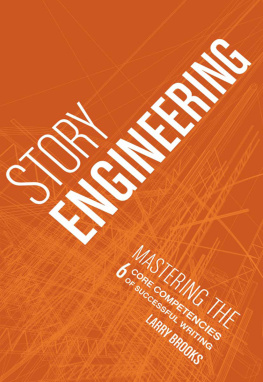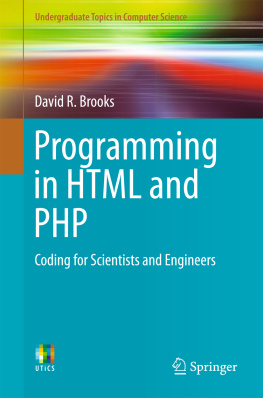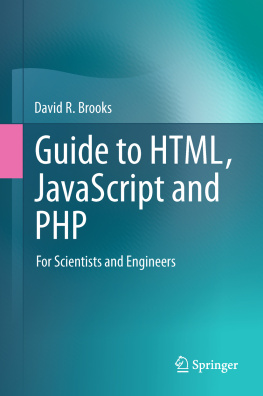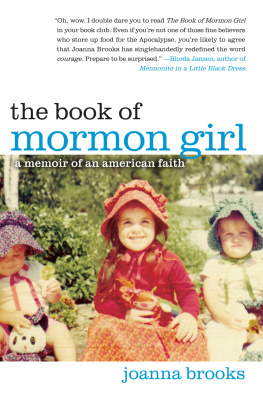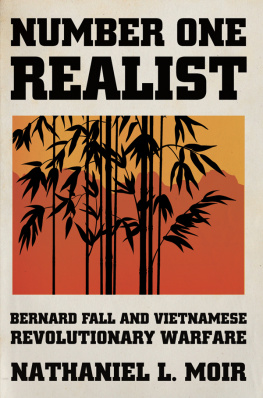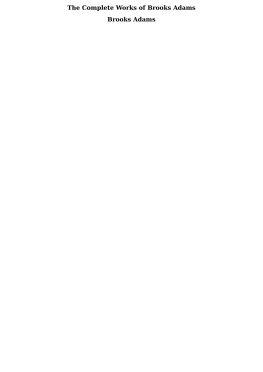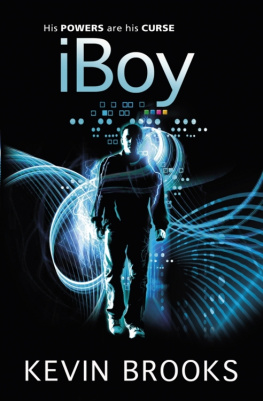Brooks - Realist Vision
Here you can read online Brooks - Realist Vision full text of the book (entire story) in english for free. Download pdf and epub, get meaning, cover and reviews about this ebook. year: 2005, publisher: Yale University Press, genre: Romance novel. Description of the work, (preface) as well as reviews are available. Best literature library LitArk.com created for fans of good reading and offers a wide selection of genres:
Romance novel
Science fiction
Adventure
Detective
Science
History
Home and family
Prose
Art
Politics
Computer
Non-fiction
Religion
Business
Children
Humor
Choose a favorite category and find really read worthwhile books. Enjoy immersion in the world of imagination, feel the emotions of the characters or learn something new for yourself, make an fascinating discovery.

- Book:Realist Vision
- Author:
- Publisher:Yale University Press
- Genre:
- Year:2005
- Rating:4 / 5
- Favourites:Add to favourites
- Your mark:
- 80
- 1
- 2
- 3
- 4
- 5
Realist Vision: summary, description and annotation
We offer to read an annotation, description, summary or preface (depends on what the author of the book "Realist Vision" wrote himself). If you haven't found the necessary information about the book — write in the comments, we will try to find it.
Realist Vision — read online for free the complete book (whole text) full work
Below is the text of the book, divided by pages. System saving the place of the last page read, allows you to conveniently read the book "Realist Vision" online for free, without having to search again every time where you left off. Put a bookmark, and you can go to the page where you finished reading at any time.
Font size:
Interval:
Bookmark:
Realist Vision
PETER BROOKS
YALE UNIVERSITY PRESS NEW HAVEN & LONDON
Published with assistance from the foundation established in memory of Philip Hamilton McMillan of the Class of 1894, Yale College.
Copyright 2005 by Yale University.
All rights reserved.
This book may not be reproduced, in whole or in part, including illustrations, in any form (beyond that copying permitted by Sections 107 and 108 of the U.S. Copyright Law and except by reviewers for the public press), without written permission from the publishers.
Designed by James J. Johnson and set in Joanna Roman types by Tseng Information Systems, Inc.
Printed in the United States of America.
Library of Congress Cataloging-in-Publication Data
Brooks, Peter, 1938
Realist vision / Peter Brooks.
p. cm.
Includes bibliographical references (p. ) and index.
ISBN 0-300-10680-7 (clothbound : alk. paper)
1. English fiction19th centuryHistory and criticism. 2. Realism in literature. 3. French fiction19th centuryHistory and criticism. 4. Literature, ComparativeEnglish and French. 5. Literature, ComparativeFrench and English. I. Title.
PR878.R4B76 2005
82380912dc22 2004029501
A catalogue record for this book is available from the British Library.
The paper in this book meets the guidelines for permanence and durability of the Committee on Production Guidelines for Book Longevity of the Council on Library Resources.
10 9 8 7 6 5 4 3 2 1
For Anna
Three years ago, as Eastman Visiting Professor at Oxford, I was instructed to present a series of public lectures, open to students and faculty, during Michaelmas Term. This daunting prospect prompted me to turn to what I know best, the English and French novels of the nineteenth-century realist tradition, and some painters in the same sphere, to try to offer a rethinking of books and problems that have been with me for many years. The following year, I was asked to give the William Clyde DeVane Lectures at Yale University, and took this as an opportunity to revisit and expand (a Yale term being longer than an Oxford term) my thinking on the subject. I have tried to maintain as much as possible the informality and generality of the lectures in moving to this book. My hope is to renew interest in the realist vision, but especially to invite rereading, reviewing, rethinking of some masterful works.
Realist Vision
Realism and Representation
I THINK WE HAVE A THIRST FOR REALITY. WHICH IS CURIOUS, SINCE WE HAVE too much reality, more than we can bear. But that is the lived, experienced reality of the everyday. We thirst for a reality that we can see, hold up to inspection, understand. Reality TV is a strange realization of this paradox: the totally banal become fascinating because offered as spectacle rather than experienceoffered as what we sometimes call vicarious experience, living in and through the lives of others. That is perhaps the reality that we want.
More simply, we might ask ourselves: Why do we take pleasure in imitations and reproductions of the things of our world? Why do we from childhood on like to play with toys that reproduce in miniature the objects amid which we live? The pleasure that human beings take in scale models of the realdollhouses, ships in bottles, lead soldiers, model railroadsmust have something to do with the sense these provide of being able to play with and therefore to master the real world. The scale modelthe modle rduit, as the French call itallows us to get both our fingers and our minds around objects otherwise alien and imposing. Models give us a way to bind and organize the complex and at times overwhelming energies of the world outside us. Freud suggests that the infants play with a spool on a stringthrown out of its crib and pulled backpresents a basic scenario in mastering reality through play. The anthropologist Claude Lvi-Strauss speculates that the hobbyists building of the scale model figures intellectual process in general, a way to understand through making. And Friedrich von Schiller long ago argued that art is the product of a human instinct for play, the Spieltrieb, by which we create our zone of apparent freedom in a world otherwise constricted by laws and necessities.
Lets suppose, then, that making models of the things of the world is a function of our desire to play, and in playing to assert that we master the world, and therefore have a certain freedom in it. For a child to push around a toy bulldozer is to imitate the work of the adult world, of course, and play with a dollhouse can imitate the childs entire environment. But the imitation brings with it the mastery the child otherwise doesnt have. Play is a form of repetition of the world with this difference that the world has become manageable. We are in charge, we control its creatures and things. The mode of lets pretend immediately transports children into a world of their own making. It is a world that can be wholly vivid and real, though there can be a coexisting consciousness that it is only pretend. And surely that continues to be true of all forms of adult play, including that form of play we call literature, the creation and consumption of fictions.
Wallace Stevens suggests that fictions arise from the need to build a space or even a shelter for ourselves in an alien world. He writes in Notes Toward a Supreme Fiction:
From this the poem springs: that we live in a place
That is not our own and, much more, not ourselves
And hard it is in spite of blazoned days.
If the world around us is not our own, more specifically if it is not human but rather a world of other species and inanimate objects, then the poem, the artwork, becomes our counteraction, our attempt to humanize the worldpursued by an artist as self-aware as Stevens of course in full knowledge that the attempt is only fictional, carried on in a realm of the as-if. Fictions are what we make up in order to make believe: the word in its Latin root, fingere, ficto, means both to make, as in the model builders activity, and to make up, to feign. Making in order to make up, to make believe, seems a reasonable description of literary fictions, and why we write them and read them.
Now, if what Ive been saying applies to all fictions, in whatever medium, what may be specific to fictions that explicitly claim to represent the real worldrealist art and literatureis its desire to be maximally reproductive of that world it is modeling for play purposes. It claims to offer us a kind of reductionmodle rduitof the world, compacted into a volume that we know can provide, for the duration of our reading, the sense of a parallel reality that can almost supplant our own. More than most other fictions, the ). It is very much like playing with a dollhouse or with a toy city. Yet of course it is already a gesture from Honor de Balzac or Charles Dickens, seeing through the roofs and facades of the real to the private lives behind and beneath.
Removing housetops in order to see the private lives played out beneath them: the gesture also suggests how centrally realist literature is attached to the visual, to looking at things, registering their presence in the world through sight. Certainly realism more than almost any other mode of literature makes sight paramountmakes it the dominant sense in our understanding of and relation to the world. The relative dominance and prestige given to the visual in the human grasp of the world reaches back to Greek philosophy, at least, and after that rarely is challenged in Western culture. Broadly speaking, Western arts are representational: different styles from the reproductive to the abstract play off the notion of representation. The claim of realism in both painting and literature is in large part that our sense of sight is the most reliable guide to the world as it most immediately affects us. The claim clearly owes much to John Locke and the rise of empiricism as a dominant, widely shared kind of thinking about mind and environment. The visual is not necessarily the end of the storyhearing, smell, touch may ultimately be just as or more importantbut it almost of necessity seems to be the beginning of the story. Realism tends to deal in first impressions of all sorts, and they are impressions on the retina first of allthe way things look. It is not coincidental that photography comes into being along with realism, with the lens imitating the retina to reproduce the world. It is on the basis of first impressions that the greatest realists will go on to far more encompassing and at times visionary visions, ones that attempt to give us not only the world viewed but as well the world comprehended.
Next pageFont size:
Interval:
Bookmark:
Similar books «Realist Vision»
Look at similar books to Realist Vision. We have selected literature similar in name and meaning in the hope of providing readers with more options to find new, interesting, not yet read works.
Discussion, reviews of the book Realist Vision and just readers' own opinions. Leave your comments, write what you think about the work, its meaning or the main characters. Specify what exactly you liked and what you didn't like, and why you think so.


